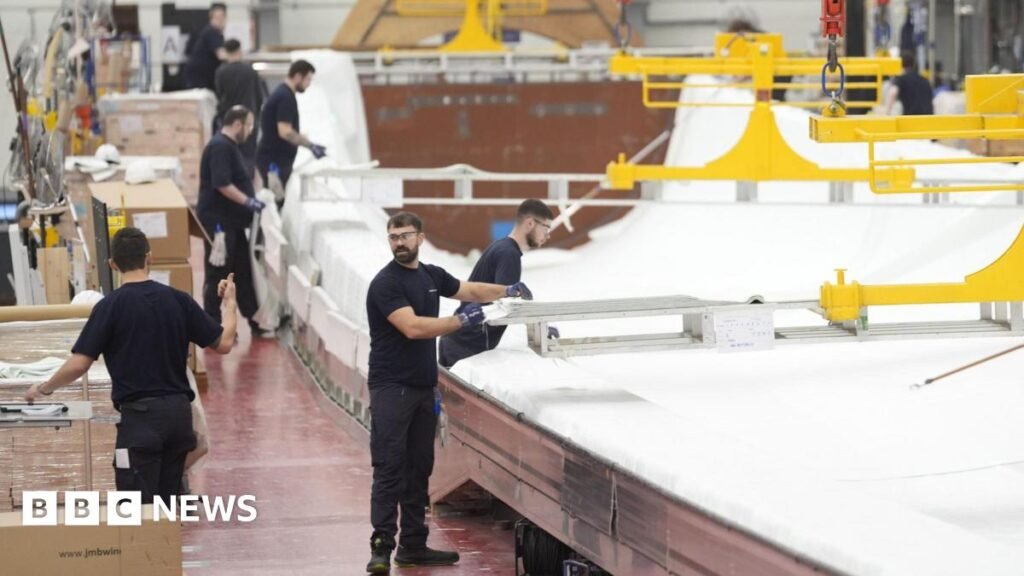In a statement, Miliband said the plan would bring “a new generation of good industrial jobs” to communities across the UK.
“Our plans will help create an economy in which there is no need to leave your hometown just to find a decent job.
“Thanks to this government’s commitment to clean energy, a generation of young people in our industrial heartlands can have well-paid, secure jobs, from plumbers to electricians and welders.”
However, Shadow Energy Secretary Claire Coutinho told the BBC the current goal of reaching net zero by 2050 was “making electricity really expensive”.
She said: “You need to look at the whole of the economy. We’re losing thousands of jobs in the North Sea, we’re losing thousands of jobs in industry.
“We have the most expensive electricity in the world and we have to bring that down.”
According to DESNZ, jobs in the clean energy sector command average salaries of more than £50,000, compared to the UK average of £37,000.
Work and Pensions Secretary Pat McFadden said: “We’re giving workers the skills needed to switch to clean energy, which is good for them, good for industry, and will drive growth across the nation.
“Our new jobs plan will unlock real opportunities and ensure everyone has access to the training and support to secure the well-paid jobs that will power our country’s future.”
Christina McAnea, general secretary of Unison, said the government’s strategy could “help create a UK workforce with highly skilled, fairly paid and secure jobs”.
“Additional funding for apprenticeships and opportunities for young people are crucial too if the UK is to have a bright and clean energy future,” she added.
Dhara Vyas, chief executive of Energy UK, the trade association for the UK energy industry, said: “Today’s announcement is a critical step forward in building the workforce required to deliver our future energy system.
“It rightly recognises the need to tackle the skills challenge collectively by investing in both new talent and our existing workforce.”

